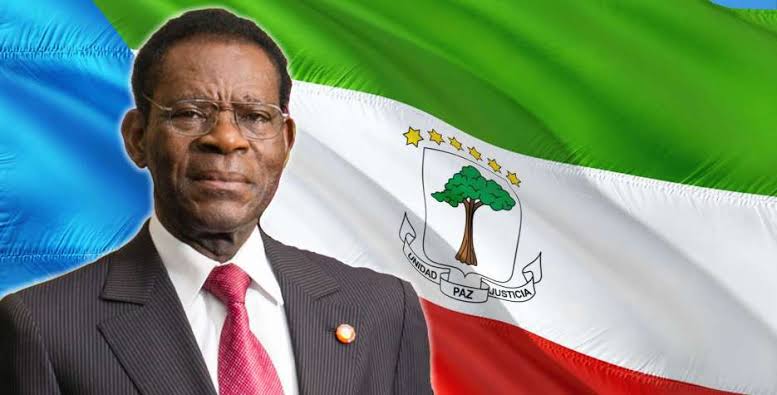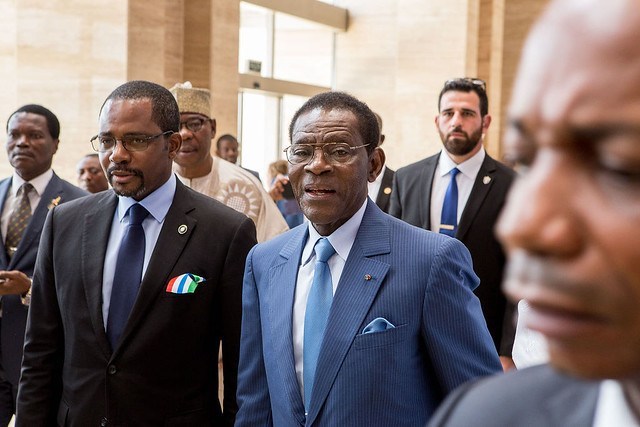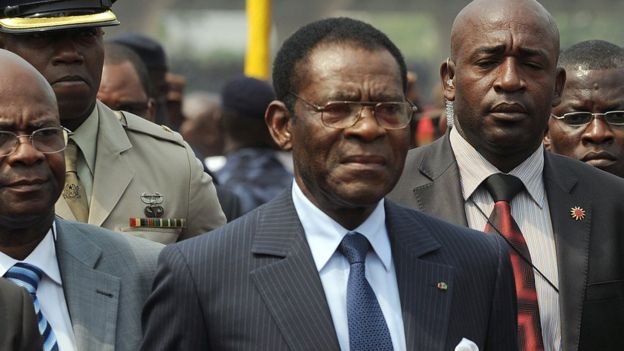News Analysis
In this analysis, Pablo Mitogo provides readers and investors the key steps to ensure they scale through their local content compliance in Equatorial Guinea, especially those who hope to invest in oil and gas sector of the economy.
The common problems that companies have with local content in Equatorial Guinea
In 2018, the Ministry of Mines and Hydrocarbons of Equatorial Guinea informed operators Exxon Mobil, Noble Energy and Marathon Oil that they should stop doing business with several companies because they were not in compliance with local content regulations under the country’s hydrocarbons law and the clauses of their PSCs. The truth is that it was not the first time that happened. In 2015 and 2016, there were also economic sanctions for the breach of local content requirements. With the local content Ministerial order covering only 20 pages, it seems surprising that companies could be risking their operations and contracts over something very straightforward. To understand the catch, read on.
Read also: After 58 Years, Nigeria’s Third Largest Oil Producer Chevron Folds Up Its Oilfields
Between 2015 and 2016 in our offices in Malabo, we had the opportunity to assist the Government in a plan that was unprecedented to audit oil and gas companies and verify their compliance with their local content obligations. We were very surprised to see how the legal departments of large oil companies did not know exactly how to protect their organizations against these demands. Because the number of companies that did not comply was very high, the Ministry decided to adopt a more collaborative than penalty approach, without which all operators and contractors would have been sanctioned in some shape of form.
Reserving the confidential client information, we observed that most of the in-house local content departments of these companies have three common problems: 1. determining who is obligated to do what under local content regulation; 2. knowing what local content includes; and 3. correctly developing a local content plan that meets very specific points required by applicable laws.
Read also: South Africa, Angola, Senegal and Equatorial Guinea Set to Launch Investment reports on Oil and Gas
To examine these common problems, it is necessary to briefly clarify what the local content is according to the legislation of Equatorial Guinea. The keyword of the local content is “privilegio.” This is a set of privileges that companies or physical entities have and whose purpose is to obtain preferential treatment with respect to other companies and people from other places when obtaining contracts in oil & gas and mining. These privileges belong to local companies, companies of the CEMAC community, or African companies.
The local content regulations in Equatorial Guinea are broader than just those set out the ministerial order. They can be found in five main legal documents: the famous decree 127/2004 (amended in April 18 of 2018 by the decree 72/2018) that ensures local participation in the oil industry, the Law No. 8/2006 of November 3rd regulating Hydrocarbons in its articles 88 to 93, the Ministerial order 4/2013 regulating petroleum operations in articles 156 and 157, the Ministerial order 1/2014 on local content. Lastly, all PSCs have very specific local content clauses. The Labor Code also contains laws such as Law No. 6/1992 on national employment policy that also affects companies in the sector, and the list goes on. The question is, how do we put together all the requirements of those laws to get a unique list that tells a company what exactly it should do to comply with local content? While complex, the exercise is feasible and quite straightforward when you know where to start and what to consider.
Because the circumstances and needs of each company are different, local content laws are also flexible. Flexibility in the terms of the law does not mean an exemption from compliance, but compliance mechanisms that can be negotiated with the authorities. For example, you can get more time to meet a specific obligation.
Now that we have outlined the basic frame of local content, we can explore the common problems that companies in the oil and gas sector have when they deal with a local content audit in Equatorial Guinea.
Operators or contractors: who is obligated under local content regulations?
Read also: Equatorial Guinea’s to boost Opportunities for African Services Companies with Upcoming Oil & amp; Gas Meeting Day
The oil and gas industry is governed by agreements, and many companies have to form alliances and joint-ventures to operate together. This may create doubts about who is obliged to comply with local content laws. According to article 2 of Ministerial order 1/2014 on local content all companies that carry out activities in the petroleum and mining sectors are obliged to comply with local content requirements. This includes: operators, explorers, contractors, sub-contractors and their associates even if they are local businesses. According to this, a) you have to have a contract in the sector and b) you have to operate in Equatorial Guinea. However, despite this clarity, there are many doubts that may arise, for example: what happens to companies that have contracts in the sector but are only licensed to provide material from abroad? Equally, if two companies are linked by a joint-operation agreement, must they comply individually or jointly? Another question that may arise is on whether a local company has to comply with all obligations or if it must simply comply with some. For example, it makes no sense that a local company would be forced to transfer technology just because it is from the oil sector. For such questions that require an interpretation, companies must work with the local content authority to obtain their interpretation in writing. It should never be assumed that a certain obligation is not applicable to a company. This is part of what we consider being flexibility in the local content laws.
The main obligations that any company should pay attention to
Local content is much more than building a primary school in a village or drilling a small water well in a local community. In our experience, it is very common for companies to present small works carried out in the villages as being works of compliance with local content. While the value of such efforts should not be minimalized and corporate social responsibility should be encouraged, a company could still be sanctioned for lack of local content compliance despite having spent money and time on CSR.
Local content mainly includes five obligations that must be structured in detail in a local content plan. These obligations include:
Procurement of goods and services. All necessary goods and services must be hired in order of preference established by the local content regulations. To prove it, companies must keep their invoices or any other document proving that they hired local services. However, it should be clarified that there are limitations to guarantee that the local procurement obligation does not cause prejudice to a) quality (local goods and services must meet international quality standards) and b) price (local goods and services cannot cost more than 10% of what the same good or service would have cost if it had been brought from abroad). That is why we insist that companies should take advantage of this flexibility to adapt each obligation to their particular needs.
Qualified workforce. All workforce must be hired in the order of preference (local, regional and continental). Foreign workforce can be hired only with an authorization, after demonstrating that the company has made substantial efforts to find specialized local workforce and has not found it. However, the authorization to import foreign labor only gives you an extension of time, because the obligation to train local labor prevents you from keeping your foreign workforce over a long period of time. If you have proven your inability to find local manpower for a specific position, you are still obligated to train local talent to fit that role so that you are able to gradually replace your foreign labor.
Technology transfer. This is another common problem for companies. We know that nobody is going to transfer the tools they can earn a profit from, and which gives them an edge on the market. Technology is the greatest power a company can have and today IOCs dominate the market because of their technology, and their edge over NOCs is not only financial but above all technical and technological. Forcing foreign companies, be them IOCs or oilfield services, to transfer their know-how is very complicated to achieve. However, the spirit of the law is not that business or industrial secrets are transferred to local premises. So how do you know that a company transfers technology within the framework of local content legislation? That question is also not easy to answer. However, the practice followed by the authorities is to verify if the company has a plan to ensure that its local resources are technically capable of carrying out their work with the international quality standards generally accepted in the industry.
Training. The clearest and most difficult clause to ignore is that pertaining to the training of local employees in order to enhance their skills. Although this obligation is already included within labor laws, the object and spirit of both laws (labor and local content) must not be confused. What is the difference? If in the labor laws it is envisage that an apprentice gains experience or acquires the skills of a profession or trade, the purpose of the local content is to specialize these in very specific tasks within the petroleum industry so that they are able to carry them out in the future autonomously with the same technical competence as a foreign expert. So, complying with one doesn’t mean that you don’t have to comply with the other. Basically, the local content laws requirements of training start where the labor laws reequipments ends. With the right advise and the correct approach, both laws can be easily complied because there is not necessarily a conflict between them.
Social Infrastructures development. What does the local content regulation refer to when they impose the obligation to run infrastructure in the communities, and is any particular infrastructure expected to be developed by oil companies and their contractors? Article 93 of the hydrocarbons law says verbatim that “they must (the infrastructures) be of the widest impact on the public.” In other words, infrastructure must be meaningful and of the quality that a community would need. It’s very important to make sure that the Infraestrure is also sustainable to the community; You don’t want to build a school without a plan to provide teachers nor learning materials or build a health center in a poor community without any nurse. The community needs a school or a health center operational, not an empty building. Practical requirements in this regard have to do with a) sustainability over time b) the importance and quality of the infrastructure to substantially improve the life of as many people as possible in a local community.
What should be in your local content plan?
The local content regulations oblige all oil and gas companies to have a detailed, long-term local content plan and implement it. Companies must also demonstrate that they are reasonably executing the plan they themselves have prepared. The important thing about this plan is that: a) it is flexible, b) it is a plan that can be adapted to the individual circumstances of each company and c) must be approved by the General Directorate of Local Content. The design of the local content plan, its evaluation and presentation to the authorities when undergoing an audit is the most critical part. Almost all companies that have been sanctioned have breached some of the essential points of their own plan. We can organize these into four large groups: i) Documentation related to the incorporation of the company; ii) Documentation related to the procurement of goods and services; iii) Documentation related to technology transfer and training of personnel; and iv) Documentation related to infrastructure development. Although we do not intend to address all these aspects in details, the following according to our experience are the ones that can create the most problems for a company.
a. Documentation related to the incorporation of the company:
· Notary deed duly legalized and registered in the Commercial Registry,
· Certificate of Tax Identification Number (NIF),
· Registration of company in the MMIE.
b. Documentation related to the acquisition of goods and services.
· List of all partners and suppliers of the company, as well as the contracts, offshore and onshore signed with them,
· National Content Development Program and its evaluation plan,
· Detailed report on contracts awarded to local companies,
· Proof of semi-annual shipments of the updated list of services that the company needs to contract,
· Proof of payment of social shares to local partners.
c. Documentation related to technology transfer and staff training:
· Detailed reports on job vacancies and jobs to be created,
· Training plan for local employees,
· List of local staff and their evaluation and promotion system,
· Annual internship program for students of the National University of Equatorial Guinea.
d. Documentation related to infrastructure construction (with social impact)
· Detailed report on Social Work Projects and their degree of compliance.
How serious is the local content compliance issue?
The highest penalty for breaching local content standards is that the government can order operators to terminate contracts or prohibit them from renewing contracts they have with a company that does not comply; and this has already happened in the past. Other sanctions include financial sanctions that in the past have reached anywhere between $500,000 to $3 million, sometimes more if we analyze the full impact of the consequences of a sanction. Other much lighter sanctions have included a warning with the company being given a short amount of time to meet very specific requirements.
Furthermore, if a company demonstrates a track record of non-compliance, they will lose the confidence not only of the government but of the operators, because every time a company is sanctioned, all its partners are affected in some way.
Conclusion. So far, three things must now be clear: a) failure to comply with local content requirements may jeopardize not just a company’s contracts, but its very existence in Equatorial Guinea and its ability to renew or obtain new contracts b) local content is a complex issue but c) managing its compliance is not a big deal providing the right steps are taken early on.
Pablo Mitogo is Associate Attorney, Centurion Law Group
Kelechi Deca

Kelechi Deca has over two decades of media experience, he has traveled to over 77 countries reporting on multilateral development institutions, international business, trade, travels, culture, and diplomacy. He is also a petrol head with in-depth knowledge of automobiles and the auto industry.















